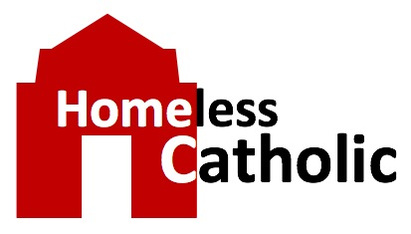Ruth's difficult choice
Ruth faced a very difficult choice. She could stay in Moab, remarry a kinsman and probably live “happily ever after," so to speak. Or she could travel to Bethlehem with Naomi, whom she loved, and practice the faith she now believed in.
Ruth willingly chose the path God offered, one certainly comprised of hardship. As she told Naomi, “For where you go, I will go, and where you lodge, I will lodge. Your people will be my people, and your God my God.”
(This is Norm McGraw's first contribution as a reflection writer for homelesscatholic.com.)
Do what's right with humility
By Norm McGraw
https://bible.usccb.org/bible/readings/082121.cfm
Ruth 2:1-3, 8-11; 4:13-17
Matthew 23:1-12
Since this my first reflection, I should introduce myself to you.
I was raised as a Roman Catholic. By the time I was twenty-five, I became an agnostic. Then it took me another three decades or so to rediscover my faith.
So, I’ll approach my comments from the viewpoint of a religious Prodigal Son.
My reflections for this week’s two readings can be summed up in the phrase, “Do what’s right with humility.”
The first reading (Ruth 2:1-3 and 14:13-17) tells the story of Ruth, the great grandmother of King David of Israel.
Born in Moab, a land of idol worship, Ruth married into a Jewish family who moved there to escape the famine in Israel.
Rejecting the idolatry of her own country, Ruth learned to love the God of the Israelites.
Then two events happened that changed the course of her life.
One was the death of all the men in Ruth’s immediate Jewish family, including her husband and that of her mother-in-law, Naomi.
The other was that conditions had changed in Judah so that Naomi could return to her country, which she wanted to do.
This left Ruth with a very difficult choice.
She could stay in Moab, remarry a kinsman and probably live “happily ever after," so to speak.
Or she could travel to Bethlehem with Naomi, whom she loved, and practice the faith she now believed in.
According to the custom of Bethlehem, those of leading heritage of the community would gather the grain harvest in the field before Ruth would be allowed to glean the remains to feed herself and her mother-in-law.
What a choice. Reject your faith and loyalty and accept security. Or follow your belief and risk everything.
What would you do if presented with those two options?
Ruth willingly chose the path God offered. As she told Naomi, “For where you go, I will go, and where you lodge, I will lodge. Your people will be my people, and your God my God.”
So, she went back with Naomi to Bethlehem. Indeed, she did glean the remains of the harvest after all those of heritage.
But because she did this, she was “noticed” by a suitable mate, Boaz, who admired her moral and spiritual character.
Because Ruth “did what was right with humility”, God rewarded her. She met and married Boaz. They beget Obed, the grandfather of King David.
The second reading (Matthew 23:1-12) are remarks Jesus made to the crowds and his disciples regarding the scribes and the Pharisees. He described the latter as focused on pomp and show.
To quote, “They love places of honor at banquets, seats of honor at synagogues, greeting at marketplaces, and the salutation ‘Rabbi’."
Instead, Jesus said for us to do the good works that the scribes and the Pharisees preach about. “Do not follow their example. For they preach but they do not practice.”
And He also asks us to be humble. “Do not be called ‘Master’; you have but one master, the Christ. The greatest among you must be your servant.”
In other words, do what’s right with humility.
Ironically, this week’s readings coincide with the Church commemorating the canonization of the Pius X (1835-1914), whose pontifical motto was “To Restore All Things in Christ.”
It’s no wonder, then, that Pius X promoted the frequent reception of the sacrament of Holy Communion.
But he was also universally known for doing good works.
After the 1908 Messina earthquake, he filled the Apostolic Palace with refugees long before the Italian government acted.
A simple man of peasant background, he would go unaccompanied to hospitals near the Vatican to visit the sick.
In other words, he walked the walk.
Now we may never face the type of life-deciding moments Ruth or Pius X did.
But there are moments in our everyday lives when some family member, friend, neighbor, or a stranger needs our advice, a kind word, or just an ear to listen.
At that moment, God is giving us the chance to act—as Ruth did, as Pius X did, as Jesus preached—
To do what’s right with humility.
After all, we already know in our hearts what God asks of us is exactly what we should do.
And our reward for living in God’s grace is much more than we can ever imagine.
As Jesus so aptly put it in Matthew 23: 12, “Whoever exalts himself will be humbled; but whoever humbles himself will be exulted.”

